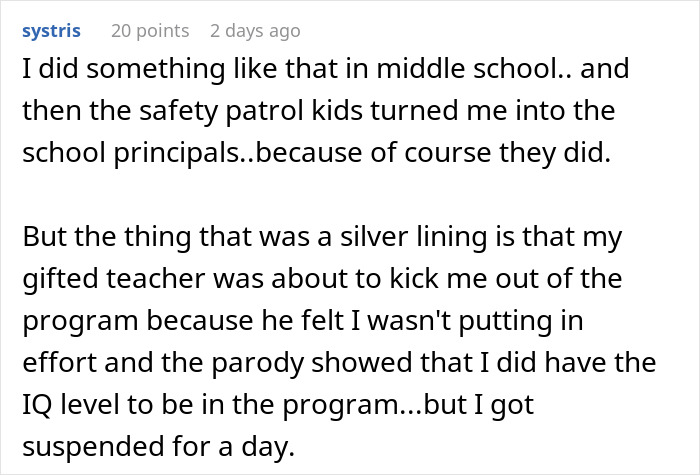You can’t expect a positive outcome after spreading rumors about someone. The offended person may bite back harshly or exact petty revenge that may be as damaging.
This man went the latter route as he recalled something from his high school years. According to him, he responded to a female schoolmate’s badmouthing by giving her a nasty nickname that stuck through their entire student life.
Seemingly reeling from the nostalgia, the author recently shared his story with the Reddit community. You’ll find the entire text below.
Spreading rumors about someone never ends well for the offending person

Image credits: RDNE Stock project / Pexels (not the actual photo)
This man recalled an incident during his high school years when he caused a female schoolmate to harbor hatred towards him
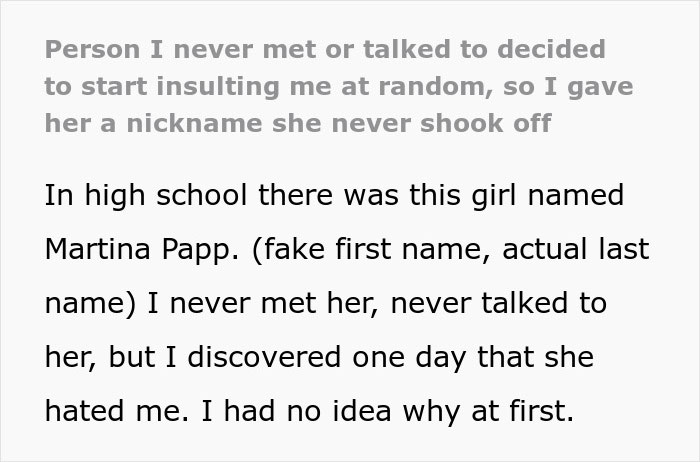



Image credits: Zen Chung / Pexels (not the actual photo)
The young woman then began badmouthing him to others, to which he responded by exacting petty revenge


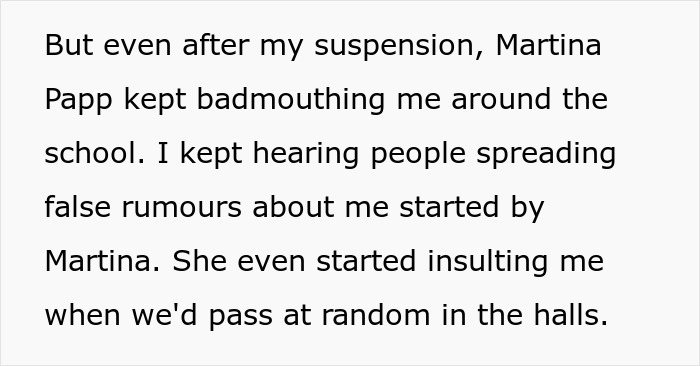
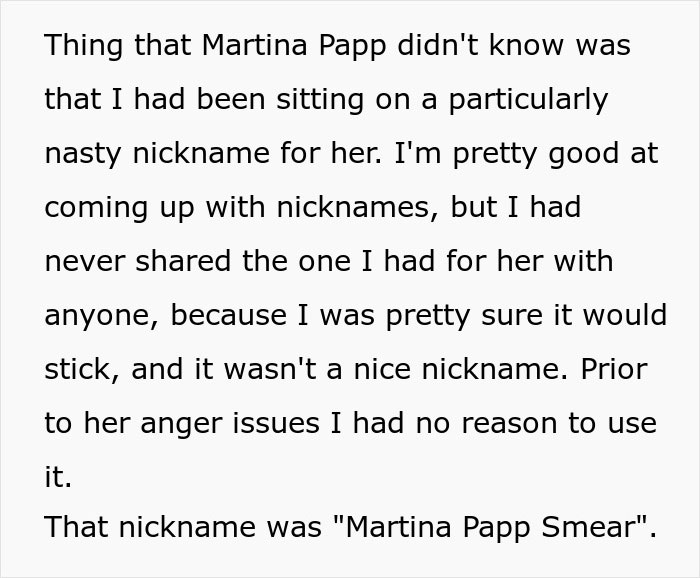

Image credits: Phạm Anh / Pexels (not the actual photo)
His plot worked well for him, as he continues to relive the moment like it happened yesterday

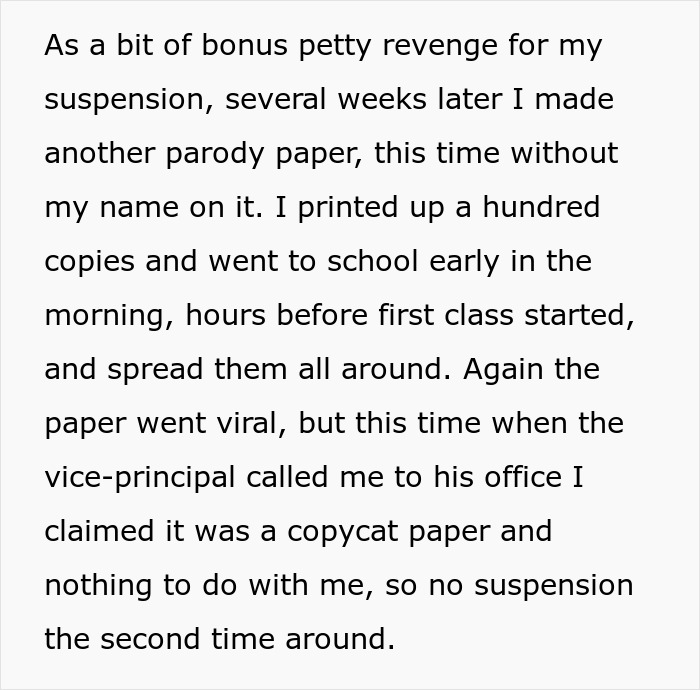
Image credits: Icy-Computer-Poop

Image credits: Kaboompics.com / Pexels (not the actual photo)
People may badmouth others to gain a reputation
When the author released his parody, Martina lost some of her shine as the school paper editor. She likely felt the need to get back on top, which may have pushed her to spread those rumors.
Experts say badmouthing others may be a way for someone to gain a reputation by creating a fearful environment. Psychology professor Dr. Glen Geher explained it in an article for Psychology Today.
“It’s socially risky to mess with bad-mouthers, and they capitalize on this fact,” he wrote.
Others may also resort to putdowns to exude confidence, Dr. Geher notes. It fast-tracks them to social success, placing them in a more advantageous position.
“Putting others down as a strategy to benefit oneself may well turn up leadership opportunities, which increase the power of the bad-mouther,” he stated.
Regardless of Martina’s motive, things backfired on her. She had to live through the rest of her student life with an unpleasantly funny nickname, which may have followed her way beyond high school.

Image credits: MART PRODUCTION / Pexels (not the actual photo)
The manner of responding to gossip matters heavily
Focusing on what is within your control is always a good way to handle a difficult situation. In the author’s case, it is how he responded to the situation.
Experts like Stanford University researcher Robb Willer suggest taking the high road and approaching the situation sympathetically and non-confrontationally. As he explained in an interview with Psychology Today, the goal is to win the other person’s sympathy.
Disassociating yourself from the situation is another way to handle someone spreading lies about you. Yale University psychology professor Michael Kraus emphasizes the importance of realizing that these problematic behaviors aren’t about you.
A person may badmouth to feel good about themselves and, as Krause states, “protect their fragile selves.”
The author did respond via petty revenge by giving Martina a “nasty nickname,” as he describes it. It wasn’t too hurtful, but it conveyed that what she did was unacceptable.
Besides, it happened in high school, when such juvenile behavior was more acceptable. However, issuing such a response as a full-grown adult is an entirely different situation that shouldn’t happen.
Many commenters approved of his reaction















Some shared similar stories

